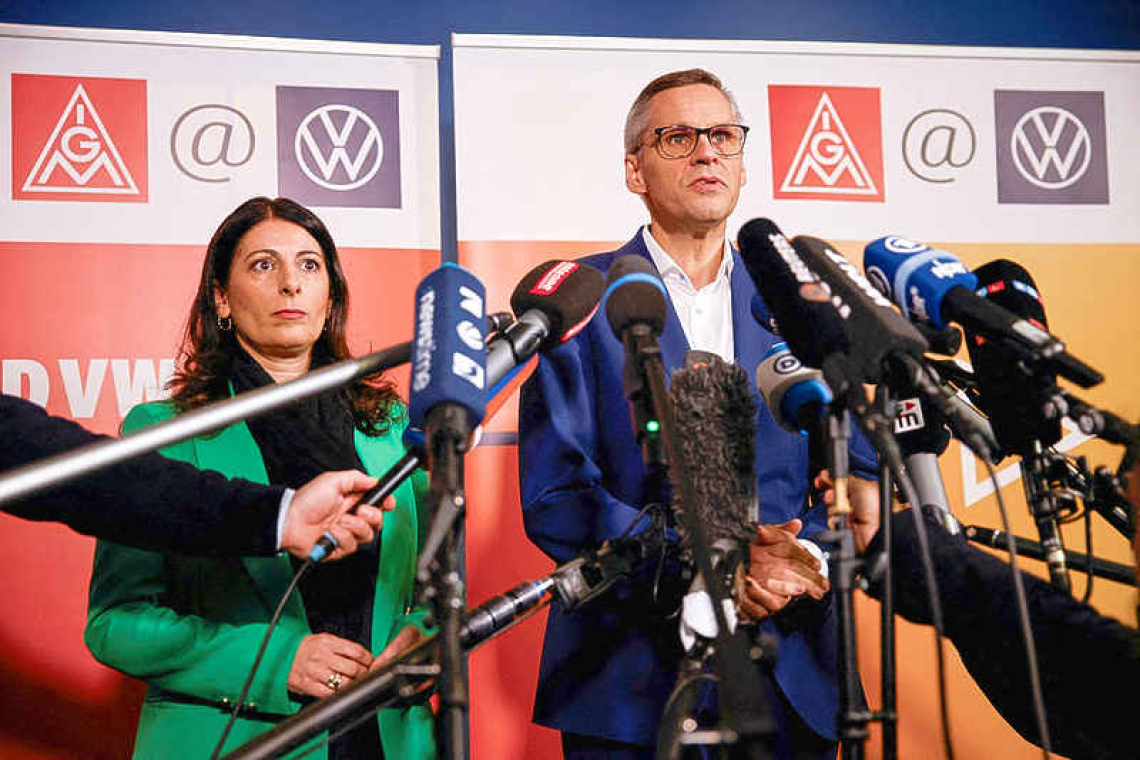WOLFSBURG, Germany--Volkswagen asked its workers to take a 10% pay cut on Wednesday, arguing it was the only way that Europe's biggest carmaker could save jobs and remain competitive as profits plunged to a three-year low and union bosses threatened strikes.
It was the first official confirmation of cost-cutting measures VW wants to implement to turn around its fortunes as high costs and weak demand in China dragged down sales and left its factories bloated from overcapacity. The company did not address directly the issue of whether it planned to close factories in Germany for the first time in Volkswagen's 87-year history, though labour representatives said that option remained on the table. VW's problems have fed wider anxieties about Germany's status as an industrial powerhouse and the competitiveness of European carmakers against encroaching global rivals. German automakers also fear the impact of a standoff between the European Union and Beijing, with EU tariffs of up to 45.3% on Chinese electric vehicles coming into force this week. "We urgently need a reduction in labour costs in order to maintain our competitiveness.
This requires a contribution from the workforce," Arne Meiswinkel, the VW brand's personnel chief who leads negotiations for the carmaker, said. Volkswagen released its third-quarter results on the same day as the second round of what have been acrimonious talks between the company and unions over wages and its broader future. The two sides agreed to keep talking and will meet again on Nov. 21. For Volkswagen, the third-quarter results were further evidence that major change was needed to keep the company competitive. But worker representatives accuse management of bungling decisions and tearing up a treasured consensus on decision-making.
They came into talks demanding a 7% pay rise and threatened strikes from December unless the company definitively ruled out plant closures. "From the company's point of view, plant closures are still on the table, i.e. they have not been completely ruled out," Volkswagen works council head Daniela Cavallo said. "Today is at best the starting signal for a marathon in which both sides have finally understood that they have to cross the finish line together."







